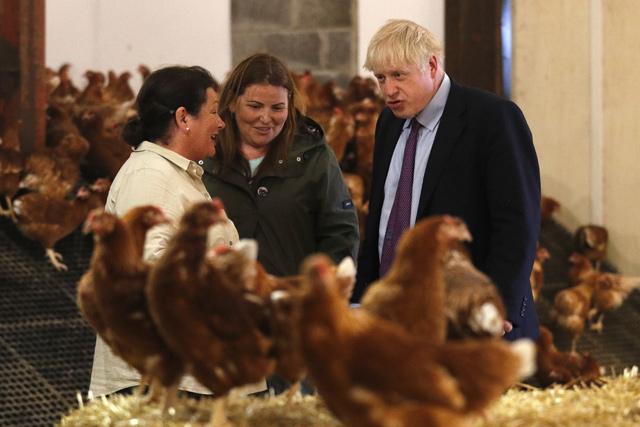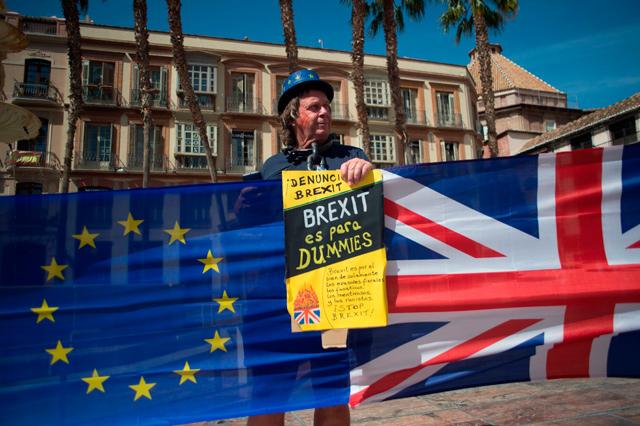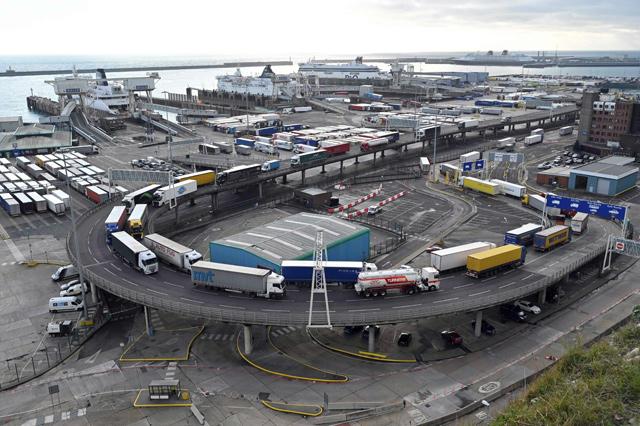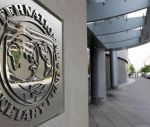You are here
Britain ‘turbo-charges’ no deal Brexit plans
By AFP - Jul 30,2019 - Last updated at Aug 01,2019

Britain's Prime Minister Boris Johnson (right), accompanied by local farmers Ingrid Shervington and her daughter Victoria Shervington-Jones, inspects the chickens during his visit to rally support for his farming plans post-Brexit, at Britain ‘turbo-charges’ no deal Brexit plans Shervington Farm, St Brides Wentlooge near Newport, south Wales, on Tuesday (AFP photo)
LONDON — British Prime Minister Boris Johnson's government holds the first of a series of daily meetings Tuesday designed to ramp up preparations to leave the European Union without a Brexit deal on October 31.
Government departments and businesses made extensive preparations ahead of the original March 29 deadline for Brexit, but after two delays, many plans were scaled back.
Johnson has now ordered government to “turbo-charge” its efforts, promising “all necessary funding”, beyond the £4.2 billion (4.6 billion euros, $5.1 billion) already allocated.
The Confederation of British Industry (CBI) lobby group says businesses must now shift to an “emergency footing”.
Government effort
Ahead of the last Brexit deadline, the government set up “Operation Yellowhammer” to prepare for short-term disruption in 12 key areas, including food and water supplies, healthcare, transport and borders.
Under this plan, every department had an operational centre and some were already running 24 hours a day, according to the Institute for Government (IfG).
These centres are expected to be restarted, while a huge new publicity drive is planned reportedly costing £100 million to help businesses and consumers prepare.
Business planning
Around 80 per cent of British companies judged themselves ready for a “no-deal” exit in the spring, according to a Bank of England survey published on March 21.
But the CBI said many goods firms are now less prepared for a disorderly divorce in October, warning that stockpiling will be harder in the busy run-up to Christmas.
In services, some stop-gap agreements have been reached on both sides including a one-year agreement to protect the massive financial derivatives market in London.
Around 3,000 solicitors have registered in Ireland to allow them to continue practising across the EU, according to the CBI.
Border delays
The EU says it would immediately begin customs checks, food safety inspections and verification of EU standards at its border with Britain.
Fearing long delays at busy crossing points, Britain has moved to open up new routes and increase links from other ports to ease the pressure on the most important, Dover.
Vital supplies
The government is seeking additional freight capacity for medicines, medical devices and chemicals, although an effort earlier this year became a costly farce after a company hired to provide sea transport had no ferries.
Many drugs firms have already built up stocks and changed supply routes to reduce disruption, the CBI said.
But around 28 per cent of food consumed in Britain comes from the EU, and major supermarkets have warned of the risk of disrupted supplies.
Planes and trains
The EU has agreed to allow flights from the UK into the other 27 member states but only until March 2020, while another time-limited deal will allow trucks to keep carrying goods in and out of Britain.
The high-speed train link through the 50-kilometre Channel Tunnel running between Britain and France will be kept open for three months, as long as Britain adopts EU rail safety standards.
Trade and tariffs
Britain says it will scrap tariffs on most imports, retaining a reduced rate for some agricultural products to protect farmers.
But the EU will treat Britain as a “third country” imposing tariffs that are on average low — around 1.5 per cent — but bigger in certain sectors: for cars, the rate is 10 per cent.
Britain will also lose access to major markets covered by EU trade agreements, although it has replicated some of these, including with South Korea and Switzerland.
EU citizens' rights
A key element of the draft Brexit deal with the EU was protecting the rights of 3.5 million European citizens living in Britain, and 1 million Brits in the bloc.
Many EU countries have moved to protect Britons' rights anyway, while more than 800,000 Europeans have already received some form of new “settled status” in Britain.
Without a deal, British citizens travelling to the EU will be limited to 90-day stays and subject to tighter passport checks.
Northern Ireland
Britain would not immediately apply customs checks on the border with EU member Ireland, to avoid raising tensions in once violence-plagued Northern Ireland.
But the EU says it would insist on monitoring goods moving across what will become its external frontier.
Northern Ireland has a devolved government but this has been suspended since January 2017, and Britain says it may have to reimpose direct rule to manage a “no deal”.
Related Articles
PARIS — With the spectre of a no-deal Brexit looming on October 31, EU members are taking measures to cushion their economies, safeguard tra
KILMACANOGE, Ireland –– Irish perfumier David Cox is preparing for a sales drive across the sea in Britain, but fears that if the country vo
LONDON — Britain on Tuesday said it would push back its implementation of full post-Brexit borders checks on goods from the European Union,


















